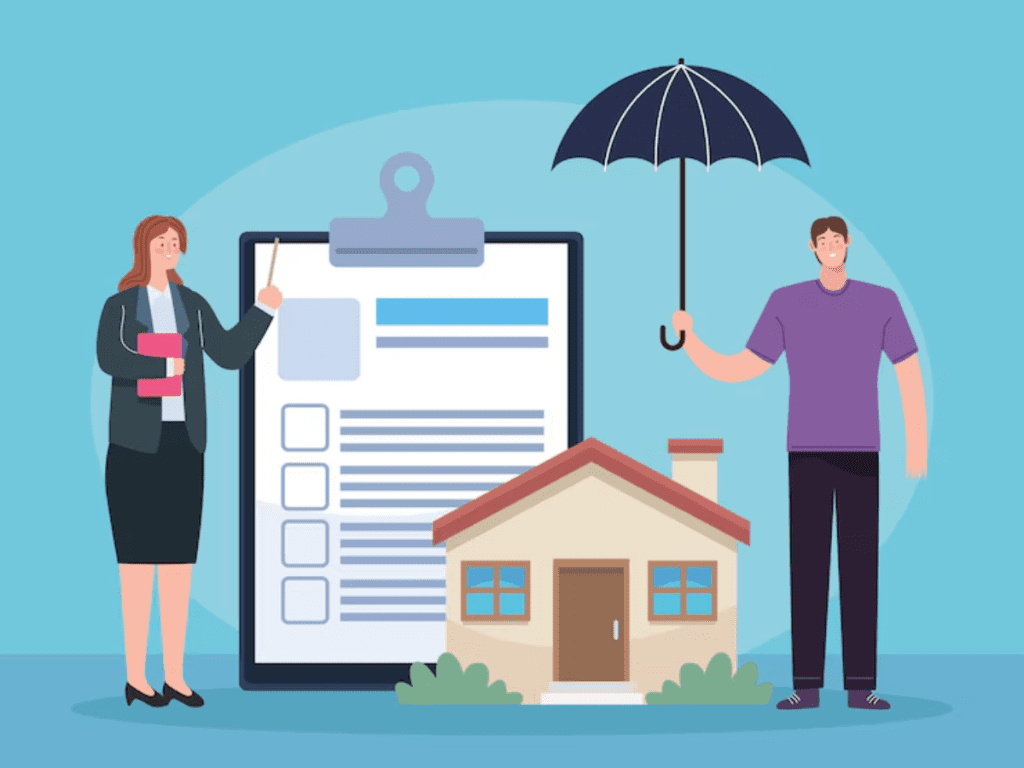Introduction
Insurance is a vital means of protecting assets, health, and livelihoods against unforeseen circumstances. Whether it’s defending a house against fire or paying for medical expenses following an accident, insurance serves as a vital safety net. Yet, most individuals do not appreciate the actual level of their insurance requirements, and they end up being underinsured. Underinsurance is when a person or organization has fewer insurance coverages than are required to pay for likely losses. Although most people believe their policy will pay for all risks, being underinsured can lead to severe financial burden. In this article, we shall discuss the actual cost of being underinsured and provide practical guidance on how not to become financially devastated after a disaster.
What Is Underinsurance
Underinsurance is a condition in which an individual or company possesses insurance coverage that is not enough to cover completely the hazards or losses that they can encounter. Underinsured parties or companies might believe they are covered, yet their policies are not enough to pay for the complete amount of damage, loss, or cost. This issue may occur under a number of circumstances, such as carrying a policy with a limit that is below what is advisable, failure to increase coverage when assets grow, or being unaware of exclusions that leave some risks uncovered.
Underinsurance may occur for a number of reasons. A frequent reason is buying insurance policies from outmoded valuations. For instance, when individuals purchase homeowners’ insurance, they tend to utilize the original purchase price of their property instead of the current replacement cost, which could have risen because of inflation or upgrades to the house. Likewise, policyholders may expect their health insurance to pay for all medical bills without comprehensively knowing policy exclusions or co-pays. Consequently, in the event of a disaster, people or companies can end up in a financial crisis due to the fact that their insurance does not offer them the protection they anticipated.
The Effect of Being Underinsured
Being underinsured can have disastrous financial impacts. During a disaster, the coverage amount might not be enough to pay for repairing or replacing destroyed property, medical bills, or lost wages. This can rapidly result in out-of-pocket costs, huge debt, and, in severe cases, financial devastation. Some of the main costs and risks of being underinsured are listed below.
Property Loss and Damage
The most severe result of underinsurance is the lack of adequate coverage for damage to or loss of property. For homebuyers, this might translate into a situation where the home is not covered adequately under its policy in the event that the home was destroyed by a fire, a natural disaster, or other act of devastation. A home’s market value may be much higher than its replacement cost. If a home owner is underinsured, they will have to foot the difference themselves. For instance, if a house is covered for $150,000 and the value to rebuild it in the event of a fire is $250,000, the home owner will have to pay the remaining $100,000.
Underinsurance can also impact renters. Renters’ insurance policies usually insure personal property, but if the policy is subpar, renters will not be adequately covered to replace lost or damaged items. For example, if someone has a $20,000 policy and loses $50,000 worth of belongings in a fire, they will have to pay for the other $30,000 out-of-pocket.
Medical Expenses
Underinsurance of medical insurance is yet another category in which individuals can be subjected to financial distress. Medical emergencies can result in substantial costs, especially if one needs surgery, specialized care, or long-term care. Without adequate coverage, one cannot pay for medical bills even with health insurance. High deductibles, restricted coverage, and exclusions can subject individuals to surprise medical bills.
In situations where individuals require urgent or continuous care, underinsurance can be especially harmful. Most individuals incorrectly believe that their health insurance policy will cover everything, but when confronted with high medical bills, they realize that their coverage is inadequate. This can result in crushing medical debt, which can have a devastating effect on their financial well-being.
Loss of Income
Disability or injury is another significant consequence of underinsurance. Most people depend on their earnings to meet everyday needs, but in case of an injury or sickness that keeps them from working, they might not be able to sustain their living standards. Disability insurance is meant to substitute a part of an individual’s earnings if they are unable to work because of illness or injury. But if a person is underinsured in this regard, then they might not get sufficient benefits to meet their living costs, and thus be in financial difficulties.
Without sufficient disability insurance, people will be forced to tap into savings, borrow money, or even declare bankruptcy just to get by. Additionally, where the person cannot return to work for a prolonged period of time, the long-term financial implications can be ruinous. Underinsurance here can also have psychological distress as people grapple with health problems alongside financial troubles.
Business Disruption
For business owners, underinsurance can be even worse. When a business experiences a disaster, whether it is a fire, flood, theft, or cyberattack, the damage can be severe. Business interruption insurance is intended to pay for lost income when a business must be closed temporarily for repairs or recovery. Without this kind of coverage, business owners can be left unable to pay operational expenses during the time the business is out of commission.
Worst case, the business could be closed down permanently. This is particularly likely if the business cannot quickly recover its lost finances. Lack of adequate insurance can result in a scenario where the business owner is personally ruined financially. Also, without insurance, business owners might be required to draw from personal funds or borrow money to pay bills, further muddling the finances.
Legal and Liability Expenses
Legal liability is also a place where underinsurance can inflict serious financial damage. In today’s litigious world, people and companies risk being sued and having legal claims brought against them. Whether it’s an accident that happens on your property or a customer suing your company, legal and liability expenses can rack up fast.
Liability insurance is meant to guard against this kind of risk. If an injury occurs on your property or if your business is sued over negligence, liability insurance can pay for the legal defense and settlement. But if you are inadequately covered in this realm, you can be left having to pay for everything out of pocket, something that could potentially cost thousands, even millions, of dollars depending on the lawsuit’s severity.
Litigation can take a toll on finances, and the result of losing a lawsuit can be long-term. Without liability coverage, businesses and individuals can become financially devastated for years to come, even if they are not responsible in the end.
How to Prevent Financial Disaster After a Disaster
Although the dangers of underinsurance are obvious, there are a number of things you can do to prevent financial devastation following a disaster. By being proactive and making sure you have adequate insurance coverage, you can shield yourself from the ruinous consequences of underinsurance. The following are some of the most important strategies for preventing financial devastation in the case of an emergency.
1. Review and Update Your Insurance Regularly
Insurance requirements evolve over time, so it’s important to periodically review your policies and ensure they offer the right amount of coverage. This is particularly relevant if you have made significant life changes, including the purchase of a new home, marriage, or having children. Your insurance must be adjusted to reflect such changes to ensure you’re properly covered.
Similarly, if you’ve added valuable items to your property, such as jewelry or art, or if the value of your property has increased due to home improvements or inflation, it’s important to update your coverage to reflect the current value of your assets.
2. Choose Adequate Coverage Limits
When you choose an insurance policy, make sure that the coverage amounts are adequate enough to pay for possible losses. Most policies come in varying amounts of coverage, so you have to determine your needs and select the right level of protection. For instance, when buying homeowners’ insurance, look at how much it will cost to rebuild your house if there is a disaster, as opposed to using its market value.
In the same way, with disability and health insurance, make sure the policy pays for a significant percentage of medical bills and lost wages. It’s a good idea to choose coverage limits that will enable you to ride out the financial hardships that could occur in case of an emergency.
3. Understand Policy Exclusions
Before you buy any insurance policy, spend some time reading the exclusions carefully. Most policies have some risks that are not insured, like flood or earthquake damage, or particular types of accidents. If your policy has some exclusions, buy additional coverage or a standalone policy so that you are completely covered.
For instance, residents in flood-risk zones might have to buy additional flood insurance since most standard policies don’t cover damage from floods. Likewise, if you’re worried about cyber attacks on your business, you might require extra cyber liability insurance.
4. Raise Your Deductible
One of the methods through which you can lower your monthly insurance costs is by raising your deductible. This, however, calls for caution, as it means you will have to spend more out of pocket before your insurance coverage can be accessed. When you decide to raise your deductible, make sure that you have adequate savings to cover this in the event of a claim.
Although increased deductibles will decrease the premium, you should always ensure that you will not be put into a difficult financial situation if you do have to make a claim. Having an emergency fund available to pay for the deductible is vital in order to make this approach effective.
5. Work with an Insurance Professional
Dealing with insurance can be complicated, so it’s best to hire an expert insurance professional. Insurance agents or brokers can assist you in evaluating your needs, suggesting suitable levels of coverage, and clarifying the provisions of your policy. They can assist you in securing discounts and special coverage opportunities that can be afforded to you.
Using a professional will assist you in steering clear of common pitfalls and make sure you’re properly insured for every area of risk.

